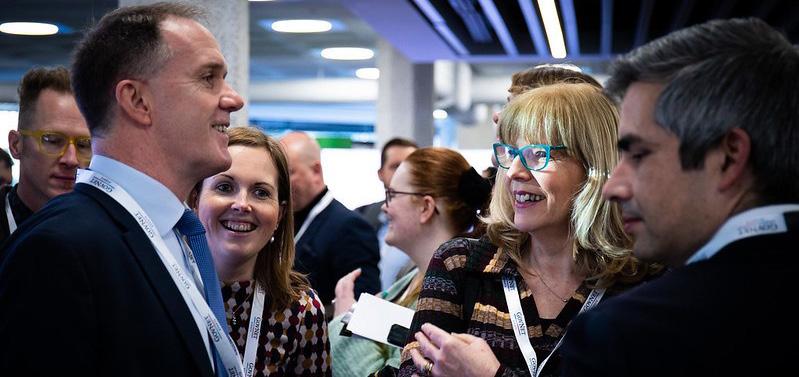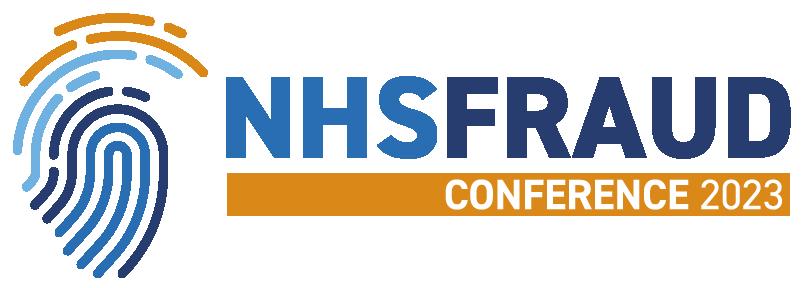
3 minute read
Inspiring collaboration across the NHS to detect and prevent fraud, bribery and corruption
from Health Business 23.2
by PSI Media
To ensure that this system is effective, it is vital to have platforms for organisationwide collaboration and knowledge sharing. By bringing together different stakeholders from the breadth of the UK, such as healthcare professionals, regulators, police and other government bodies, we can work together to identify potential risks of fraud and tackle the prevention element as well as detection and subsequent resolution. That is the goal of GovNet Fraud and the upcoming NHS Fraud conference on 16th May: www.nhsfraudconference.co.uk
Tackling fraud together: the importance of data sharing as a part of your fraud prevention and detection plans
Data sharing is not just a good idea, it is essential to the security of the NHS. If each Trust only uses its own data, you only see part of the picture. To this effect, and to keep up with fraudsters, we need to be sharing data across the NHS and with relevant local authorities and external bodies. In other parts of the public sector, we’re making good progress on this - the Cabinet Office’s recent proposal to create a new regulation under the Digital Economy Act 2017, strengthening the ability for government departments to share necessary information to support identity verification and reuse, is a huge step in the right direction but there’s still a long way to go. CIFAS and NHS England will be hosting an open and honest panel session as part of the NHS Fraud conference, giving advice on how to work with the National Fraud Initiative (NFI) in practice, and explanations on how to use the Data Protection Act exemption to aid your investigations.
Understanding prosecution and alternative routes
Fraud investigations are complex and challenging processes. Because of this, Andrew Penhale, head of the Specialist Fraud Division for the CPS, will be demonstrating how to make sure your fraud investigation meets CPS requirements, including the need for thorough evidence gathering and analysis, understanding applicable laws and regulations, creating a clear chain of evidence, and ensuring accuracy throughout the process. In some cases where the investigation reveals the conduct not suitable or significant enough to meet the threshold for prosecution by the Crown Prosecution Service, other civil remedies are available to act as a deterrence and punishment for the offence committed. Simon Hammond, director of claims management for NHS Resolution will explore what alternative civil remedies are available, and what steps you need to take to achieve them.
The importance of fraud within NHS finance
As Mark Cheeseman OBE recently said in his Fraud Focus interview with Alex Rothwell (opposite) – “Fraud is a fact, it’s not a failure. Seeing it as a failure is one of the things that really holds us back because it creates a culture of defensiveness, as though we’ve done something wrong”. To expand on this, Matthew JordanBoyd, director of finance and corporate resources, NHS Counter Fraud Authority will be discussing how finding fraud must be at the forefront of all NHS finance teams, specifically mandate fraud which has been on the rise in recent years, becoming the biggest threat to the NHS. To instigate the culture shift we need people working at all levels within the NHS to accept that fraud is a part of what we do and will always exist, so it must be drilled home that identifying fraud really is a positive outcome. If we don’t identify it, that’s when we need to re-visit our processes, looking at what other Trusts and public bodies have done differently, and start finding the gaps in our own systems.
Why prevention is the key to a successful counter fraud function
As well as identification, fraud prevention is an essential element of any successful counter fraud function and it requires organisations to be proactive in their approach. Prevention can be achieved through a combination of technology, processes, and people: technology can provide real-time insights into potential fraudulent activities, while processes can help ensure that the right controls are in place to prevent fraud from occurring. Finally, people are needed to ensure that these controls are being followed and that any suspicious activity is reported promptly. The NHS Fraud conference closing debate will see Mark Astley, head of NAFN Data and Intelligence Services, National Anti-Fraud Network (NAFN) and Rachael Tiffen, director of public sector, CIFAS discussing a range of different prevention tactics, how to use them and which they’ve found to be most effective.
Collaboration: NHS Fraud 2023
From prevention and detection to awareness and collaboration, NHS Fraud is a groundbreaking, free-to-attend event that will set the base points to improve the NHS’s national response to fraud. The conference is designed to let you network, ask questions, debate, discuss and engage with 200 other counter-fraud professionals within the NHS, local government and other public bodies. Complimentary tickets are available now. Health Business readers can book here and view the full agenda here











